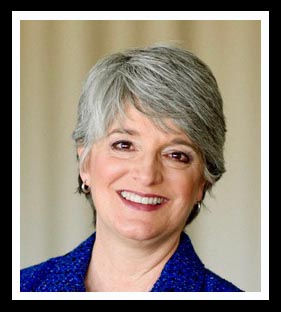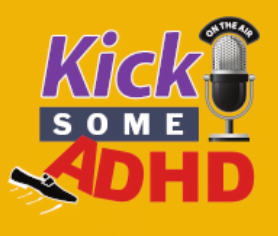
A whole lot of people with ADHD struggle with sleep. In fact, sleep is a huge problem for 90% of the ADHD clients I’ve helped over the past 20+ years.
They stay up way too late doing that ‘one more thing’ to finish a project or watch TV. They struggle to turn their brains off to fall asleep. Or they wake up in the middle of the night and can’t fall back to sleep. All resulting in only 4 or 5 hours of sleep a night.
As a society, we tend to treat sleep as though it’s a waste of time. We think we’re not being productive when we’re asleep or don’t see the value of getting a full night’s sleep.
The reality? Deep, renewing sleep is essential. Just like you need to turn off the light bulb so it doesn’t burn out too early, you need to also turn off your brain.
What Does Lack of Sleep Do to People with ADHD?
During sleep, your brain does lots of neurotransmitter repair work. Imagine it like this – as you sleep, all those dopamine and norepinephrine receptors that are essential for focusing, paying attention, and finishing tasks get a tune up.
Yes, it’s a lot more complicated than that, but it’s also that simple.
Lack of sleep makes our ADHD brains foggy; our physical and mental hyperactivity more intense. It makes it harder to make decisions and focus, and increases our tendency to get distracted and jump from thing to thing. It makes us more sensitive and our emotions harder to manage. That brain switch becomes way too heavy to turn on.
Your lack of sleep wastes your time and makes it so much harder for you to accomplish your priorities. To work effectively and run your home. Accomplish your dreams.
When you’re exhausted, your ADHD symptoms flare out of control. Kiss any hope of managing your time or staying organized goodbye. Your chances of success fade.
If you can master sleep, you will make a huge dent in being able to sustain an attentive and sharp brain. To change the way you live with ADHD, we have to at least start you on the path of changing your habits.
When Do Sleepless Nights Become a Problem?
Now before I stress you out about how damaging last night’s bad night will impact you long-term, let me add a caveat: I’m not that concerned about the occasional night of too little sleep. That happens to everybody.
One night of bad sleep means you need to be nicer to yourself the next day. Lower your expectations of what you can do. Accept the brain fog. Sneak a cat nap in the afternoon and get to bed earlier the next night.
The massive long-term ADHD sleep challenge I worry about is the long-term sleep deficit.
Chronic lack of sleep impacts many of the people I coach. ADHD adults need enough sleep or their symptoms flash to uncontrollable levels. Lack of sleep makes it nearly impossible to solve other ADHD issues. Erasing that sleep deficit becomes focus #1.
How Much Sleep Do YOU Need?
Not that you know that ADHD adults need enough sleep, next we look at how much sleep you need.
Most people need between 7 and 9 hours of sleep a night. Do you know how much you need? If you don’t, then start with 8 hours.
Here’s a trick to determine how much sleep your body and brain needs: you know you’re getting enough sleep when you can wake up consistently before your alarm goes off.
So for me, I know that if I go to bed at 10 pm, I wake up on my own a bit before 5:30 AM. So I need an average of 7 ½ hours of sleep a night.
This week, go to bed and see what time you wake up naturally in the morning. If your alarm hits and you’re dragging yourself out of bed, try to go to bed a little earlier the next night and so on.
Let me know how that works for you and what you discover!
Here are other ways to keep your ADHD Brain Switch on:

 Tired of struggling with ADHD? You’re in the right place. ADHD Success is loaded with free, practical tips to help you get organized, manage your time, and live more easily with Adult ADHD. Like what you read? Sign up for the newsletter now! No Spam. I promise!
Tired of struggling with ADHD? You’re in the right place. ADHD Success is loaded with free, practical tips to help you get organized, manage your time, and live more easily with Adult ADHD. Like what you read? Sign up for the newsletter now! No Spam. I promise!
0 Comments